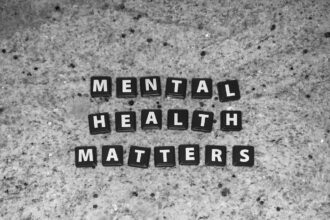Toxic positivity is a term that has gained traction in recent years, and it refers to the excessive and insincere promotion of positive thinking while dismissing or invalidating negative emotions. You may have encountered this phenomenon in various aspects of life, from social media posts that encourage you to “just think positive” to well-meaning friends who urge you to “look on the bright side” during tough times. While positivity can be beneficial, toxic positivity takes it a step further by creating an environment where genuine feelings are stifled.
It suggests that any negative emotion is a sign of weakness or failure, leading you to feel guilty for experiencing sadness, anger, or frustration. Understanding toxic positivity requires recognizing the fine line between encouraging optimism and invalidating real emotions. You might find yourself in situations where you feel pressured to maintain a cheerful demeanor, even when you’re grappling with difficult feelings.
This pressure can stem from societal expectations, cultural norms, or even personal beliefs about what it means to be strong or resilient. By acknowledging the existence of toxic positivity, you can begin to navigate your emotional landscape more authentically, allowing yourself to experience the full spectrum of human emotions without fear of judgment.
Key Takeaways
- Toxic positivity is the belief that one should always maintain a positive mindset, even in the face of difficult emotions or situations.
- Suppressing emotions can lead to negative effects such as increased stress, anxiety, and even physical health issues.
- There is societal pressure to always be positive, which can invalidate genuine emotions and create a culture of toxic positivity.
- Toxic positivity can have a significant impact on mental health, leading to feelings of inadequacy and shame for experiencing natural human emotions.
- Embracing a range of emotions is important for mental well-being and can help prevent burnout caused by the pressure to always be positive.
The Negative Effects of Suppressing Emotions
When you suppress your emotions in favor of a constant positive outlook, you may inadvertently create a breeding ground for stress and anxiety. Ignoring feelings like sadness or anger doesn’t make them disappear; instead, they often fester beneath the surface, leading to emotional turmoil. You might find that the more you try to push away these feelings, the more intense they become.
This suppression can manifest in various ways, including irritability, mood swings, and even physical symptoms like headaches or fatigue. Moreover, the act of suppressing emotions can hinder your ability to connect with others on a deeper level. When you present a facade of perpetual happiness, you may inadvertently alienate those around you who are struggling with their own emotions.
Authentic connections are built on vulnerability and honesty, and by denying your true feelings, you risk missing out on meaningful relationships. Recognizing the negative effects of emotional suppression is crucial for fostering healthier interactions and promoting emotional well-being.
The Pressure to Always be Positive

In today’s fast-paced world, there is an overwhelming pressure to maintain a positive attitude at all times. You may feel compelled to project an image of happiness and success, whether on social media or in your personal life. This pressure can be particularly pronounced in professional settings, where positivity is often equated with productivity and effectiveness.
As a result, you might find yourself forcing a smile even when you’re feeling overwhelmed or stressed. This relentless pursuit of positivity can lead to feelings of inadequacy and self-doubt. You may start to question your worth if you find it challenging to maintain a cheerful disposition.
The constant comparison to others who seem perpetually happy can exacerbate these feelings, making it difficult for you to acknowledge your own struggles. Understanding the societal pressures that contribute to this mindset is essential for breaking free from the cycle of toxic positivity and embracing a more balanced emotional experience.
How Toxic Positivity Invalidates Genuine Emotions
| Aspect | Impact |
|---|---|
| Dismissal of genuine emotions | Leads to feelings of invalidation and loneliness |
| Pressure to always be positive | Creates unrealistic expectations and masks true feelings |
| Undermining of mental health struggles | Contributes to stigma and prevents seeking help |
| Failure to address root causes | Prevents meaningful resolution and growth |
Toxic positivity operates on the premise that negative emotions are undesirable and should be avoided at all costs. When you encounter someone who dismisses your feelings with platitudes like “It could be worse” or “Just stay positive,” it can feel incredibly invalidating. These responses suggest that your emotions are not worthy of attention or consideration, leading you to question the legitimacy of your feelings.
This invalidation can create a sense of isolation, as you may feel that no one truly understands what you’re going through. Moreover, toxic positivity can prevent you from processing your emotions in a healthy way. When you’re told to “just get over it,” you might suppress your feelings instead of addressing them head-on.
This avoidance can lead to unresolved issues that resurface later, often in more destructive ways. By recognizing how toxic positivity invalidates genuine emotions, you can begin to cultivate an environment where open dialogue about feelings is encouraged and supported.
The Impact on Mental Health
The impact of toxic positivity on mental health cannot be overstated. When you feel compelled to mask your true emotions with forced positivity, it can lead to increased anxiety and depression. You may find yourself trapped in a cycle of pretending everything is fine while internally struggling with overwhelming feelings of sadness or frustration.
This disconnect between your outward appearance and inner reality can create significant emotional distress. Additionally, the pressure to conform to a positive mindset can lead to feelings of shame when you do experience negative emotions.
By acknowledging the detrimental effects of toxic positivity on mental health, you can take proactive steps toward fostering a more compassionate relationship with yourself and your emotions.
The Importance of Embracing a Range of Emotions

Embracing a range of emotions is essential for your overall well-being. You are not meant to feel happy all the time; rather, experiencing a variety of emotions is part of being human. Allowing yourself to feel sadness, anger, or frustration can lead to greater self-awareness and emotional resilience.
When you acknowledge and process these feelings, you create space for healing and growth. Moreover, embracing a full spectrum of emotions allows you to appreciate the moments of joy and happiness more deeply. When you’ve experienced sadness or hardship, the contrast makes positive experiences feel even more meaningful.
By recognizing that all emotions have value and purpose, you can cultivate a healthier relationship with yourself and those around you.
How Toxic Positivity Can Lead to Burnout
The relentless pursuit of positivity can ultimately lead to burnout—a state of physical, emotional, and mental exhaustion caused by prolonged stress. When you’re constantly trying to maintain an upbeat facade, it can drain your energy and leave you feeling depleted. You may find yourself pushing through challenges without taking the time to acknowledge your own needs or limitations.
Burnout often manifests as chronic fatigue, irritability, and a sense of detachment from work or personal relationships. You might feel overwhelmed by responsibilities but struggle to express these feelings due to the fear of being perceived as negative or ungrateful.
Recognizing and Addressing Toxic Positivity in Relationships
In relationships, toxic positivity can create barriers to open communication and emotional intimacy. You may find yourself in situations where friends or family members dismiss your feelings in favor of overly optimistic platitudes. This dynamic can lead to frustration and resentment as you struggle to express your true emotions without fear of judgment.
To address toxic positivity in relationships, it’s important to foster an environment where vulnerability is welcomed and encouraged. You might start by expressing your own feelings honestly and inviting others to do the same. By modeling authentic emotional expression, you create space for deeper connections and mutual support.
Recognizing toxic positivity in relationships allows you to cultivate healthier dynamics based on empathy and understanding.
Cultivating Authenticity and Vulnerability
Cultivating authenticity and vulnerability is essential for breaking free from the constraints of toxic positivity. You may find that embracing your true self—flaws and all—allows for deeper connections with others and greater self-acceptance. Vulnerability involves sharing your struggles and fears without fear of judgment, creating an atmosphere where others feel safe doing the same.
To cultivate authenticity, start by acknowledging your feelings without judgment. Allow yourself to experience emotions fully, whether they are positive or negative. You might also seek out supportive communities where open dialogue about emotions is encouraged.
By prioritizing authenticity in your interactions, you create opportunities for genuine connections that foster emotional growth.
Finding Balance in Positive Thinking
Finding balance in positive thinking involves recognizing that it’s okay to experience negative emotions while still striving for optimism. You may benefit from reframing your perspective on positivity—not as an obligation but as a choice that coexists with other emotions. Instead of forcing yourself into a perpetual state of happiness, consider adopting a mindset that allows for both joy and sorrow.
Practicing mindfulness can be an effective way to achieve this balance. By staying present with your emotions without judgment, you create space for both positive and negative experiences. This approach allows you to acknowledge challenges while still maintaining hope for brighter days ahead.
Navigating a Culture of Toxic Positivity
Navigating a culture steeped in toxic positivity requires conscious effort and self-awareness. You may encounter messages that encourage relentless optimism at every turn—from social media influencers promoting “good vibes only” to workplace cultures that prioritize positivity over authenticity. To thrive in this environment, it’s essential to cultivate resilience by recognizing when these messages are harmful rather than helpful.
You might start by setting boundaries around exposure to toxic positivity—whether that means curating your social media feeds or engaging in conversations that prioritize emotional honesty over superficial cheerfulness. By actively challenging societal norms around positivity, you empower yourself to embrace the full range of human emotions while fostering deeper connections with others who share similar values. In conclusion, understanding toxic positivity is crucial for navigating your emotional landscape authentically.
By recognizing its negative effects on mental health and relationships, embracing a range of emotions becomes essential for personal growth and well-being. Cultivating authenticity and vulnerability allows for deeper connections while finding balance in positive thinking helps navigate a culture that often prioritizes superficial cheerfulness over genuine emotional expression. Ultimately, embracing all aspects of your emotional experience will lead to greater resilience and fulfillment in life.
Toxic positivity can often overshadow genuine emotions, leading individuals to feel invalidated in their struggles. For a deeper understanding of this phenomenon, you can explore the article on the dark side of toxic positivity at Unplugged Psych. This resource delves into the implications of promoting a relentlessly positive mindset and offers insights on how to navigate emotional authenticity in a world that often prioritizes positivity over vulnerability.
Manifestation is BROKEN (The Dark Psychology of Toxic Positivity)
FAQs
What is toxic positivity?
Toxic positivity refers to the excessive and ineffective overgeneralization of a happy, optimistic state across all situations. It involves the denial, minimization, and invalidation of authentic human emotional experiences.
What are the characteristics of toxic positivity?
Characteristics of toxic positivity include the avoidance of negative emotions, the pressure to always be happy and positive, the invalidation of genuine feelings, and the dismissal of legitimate struggles and challenges.
How does toxic positivity impact mental health?
Toxic positivity can have negative impacts on mental health by suppressing and invalidating genuine emotions, leading to feelings of shame, guilt, and isolation. It can also prevent individuals from seeking help and addressing their true emotional needs.
What are some examples of toxic positivity?
Examples of toxic positivity include phrases such as “just think positive,” “everything happens for a reason,” and “good vibes only.” These statements can dismiss and invalidate someone’s genuine emotions and experiences.
How can one address toxic positivity?
Addressing toxic positivity involves acknowledging and validating all emotions, creating a safe space for open and honest conversations, and promoting a culture of empathy, understanding, and support for genuine emotional experiences.




